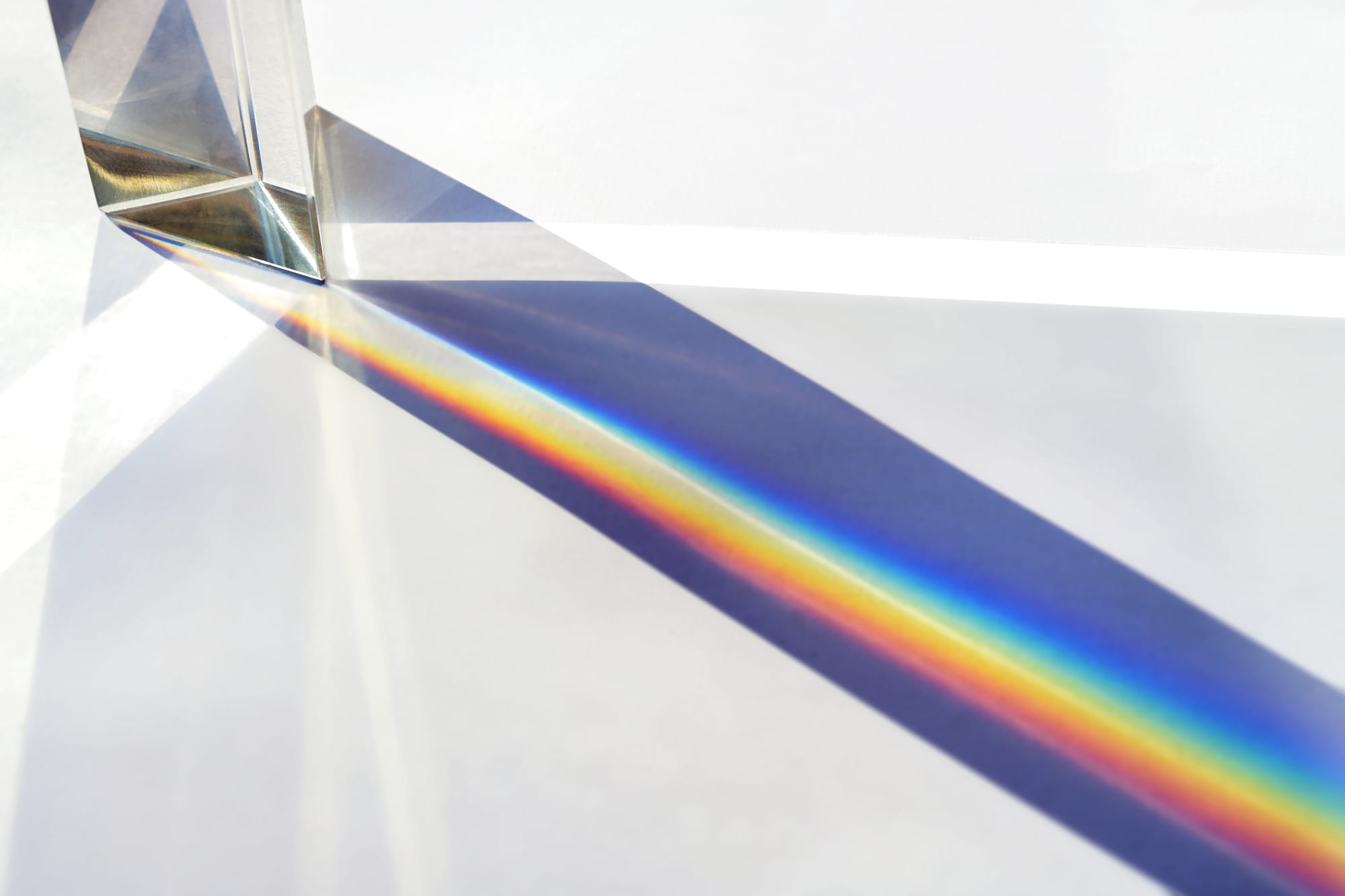Beyond Binary: Finding Light in the Spectrum of Identity

"The world is not white, or black, or yellow, or red; the world is all of these things. Life is not either/or. Life is both."
James Baldwin
As a child of West African and American-European heritage, I learned early that identity isn't an either/or proposition. My path to understanding this truth has been illuminated by conversations both profound and playful - like the ongoing dialogue with my young nephew about my favorite color.
"Auntie - what's your favorite color?" he would ask, seeking a simple answer from the standard rainbow lineup we teach children.
"Sunlight," I would tell him sometimes, watching his face scrunch in confusion. Other times, I'd say "the rainbow," which would earn me the same puzzled look.
"That's not a color, auntie," he'd protest.
I'd smile and explain, "Well, actually, sunlight is all the colors. When you see it coming through your window, what you're seeing is the rainbow – you just need a prism to see it." Over time, this became our little ritual, this gentle push and pull between his desire for a simple answer and my insistence on embracing the complexity of light itself.
These conversations feel especially meaningful now as I watch him grow into his own complex identity. Like the sunlight we used to discuss, he contains multitudes - curly hair that catches the light, skin that deepens beautifully in the summer sun. In a world that often demands simple categorization, he'll have choices to make about how to express and embrace all the parts of who he is. As I explored in "More Than Black,"2 these choices become more complex as we navigate a society that wants to define us by shades and categories, that sometimes sees color before it sees humanity.
I've written before in "Neither. Both."1 about the richness of heritage that comes from parents who defied simple categorization - a father whose early embrace of Ayurvedic meditation at seventeen gave him the focus to pursue physics, a mother who forged her own path from Ghana to London to study nursing, before love brought her to the United States. Their story reminds us that identity isn't just about where we come from, but about all the places we choose to go, all the ways we choose to grow.
When we face choices that feel like either/or propositions, I think back to those conversations about sunlight and rainbows. How light itself teaches us that what appears simple often contains beautiful complexity. How sometimes we need to adjust our perspective - find the right prism - to see the full spectrum of possibilities before us.
These lessons about light and color, about the beauty of refusing simple categorization, echo through my life in unexpected ways. On my first day of kindergarten, I met another little girl who understood this instinctively - her father West African, her mother a white Midwestern American, while I was born to a West African mother and a white Midwestern American father. We became mirrors for each other, reflecting back the complexity that others sometimes struggled to see. Now, decades later, that childhood friend has become what I think of as my diamond sister - each of us reflecting different facets of our shared experience, our shared understanding that identity contains multitudes.
The path forward isn't about eliminating differences or forcing false choices. It's about creating space for complexity, for nuance, for the full spectrum of human experience. Like sunlight itself, we contain multitudes - and it's only when we embrace this truth that we can truly see each other in our full, beautiful complexity.
Perhaps you're reading this and thinking your identity is simpler, more straightforward - that this spectrum thinking doesn't apply to you. But ask yourself: What stories of migration, of love across boundaries, of cultural mixing and matching lie in your own family tree? What richness gets lost when you reduce yourself to a single checkbox? Even those who see themselves as part of a dominant culture carry centuries of blended histories in their blood, countless stories of crossing borders both literal and metaphorical. When we accept the false choice of simple categorization - whether it's imposed by others or by ourselves - we don't just erase others' complexity. We erase our own.
For more perspectives on moving beyond binary thinking, read "Neither. Both." and "More Than Black" here on Suanshine's Unfiltered Reality.
